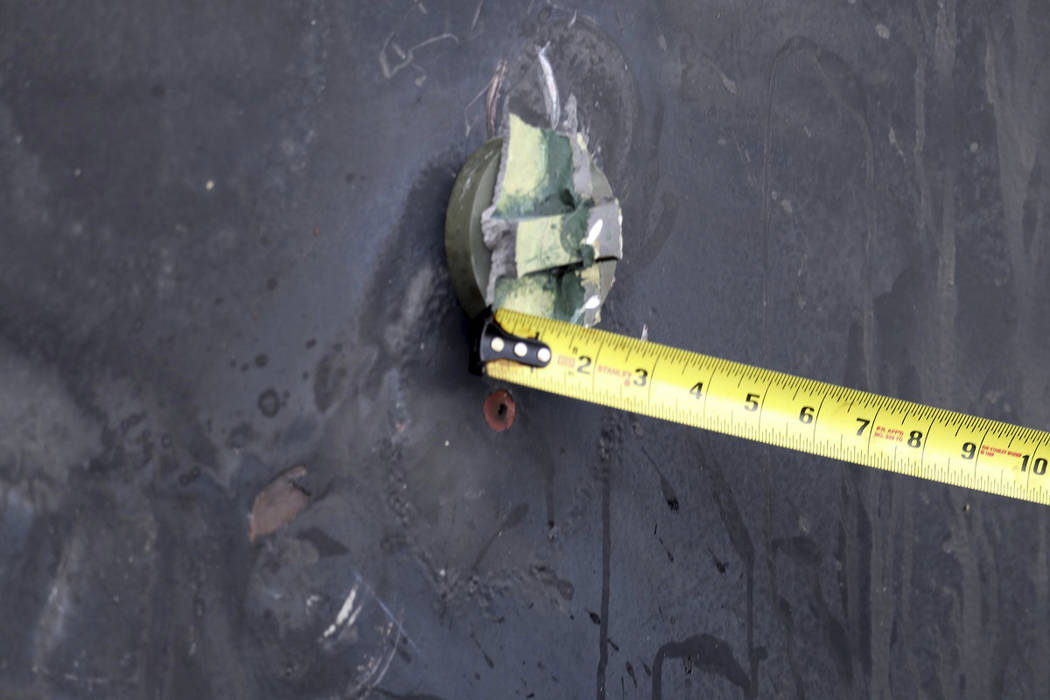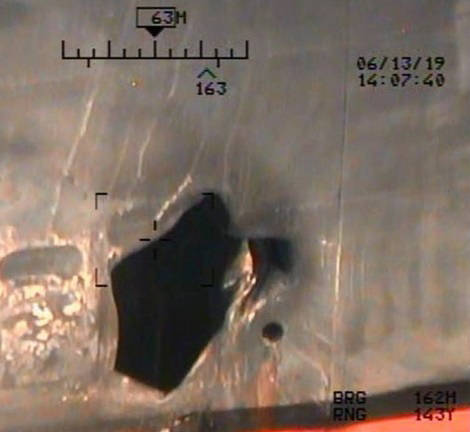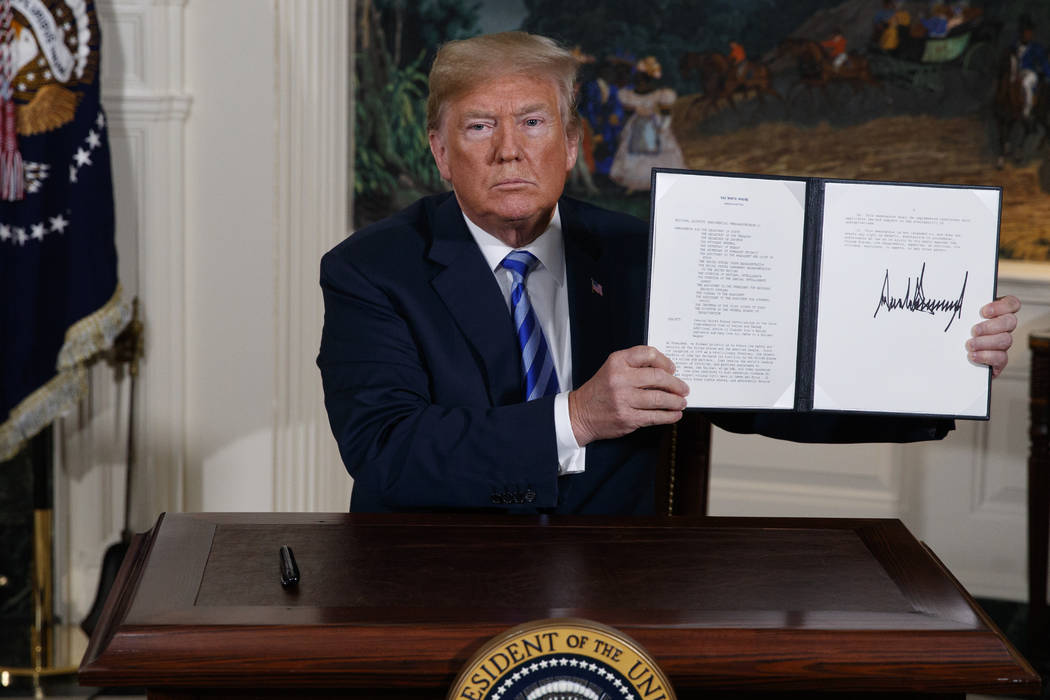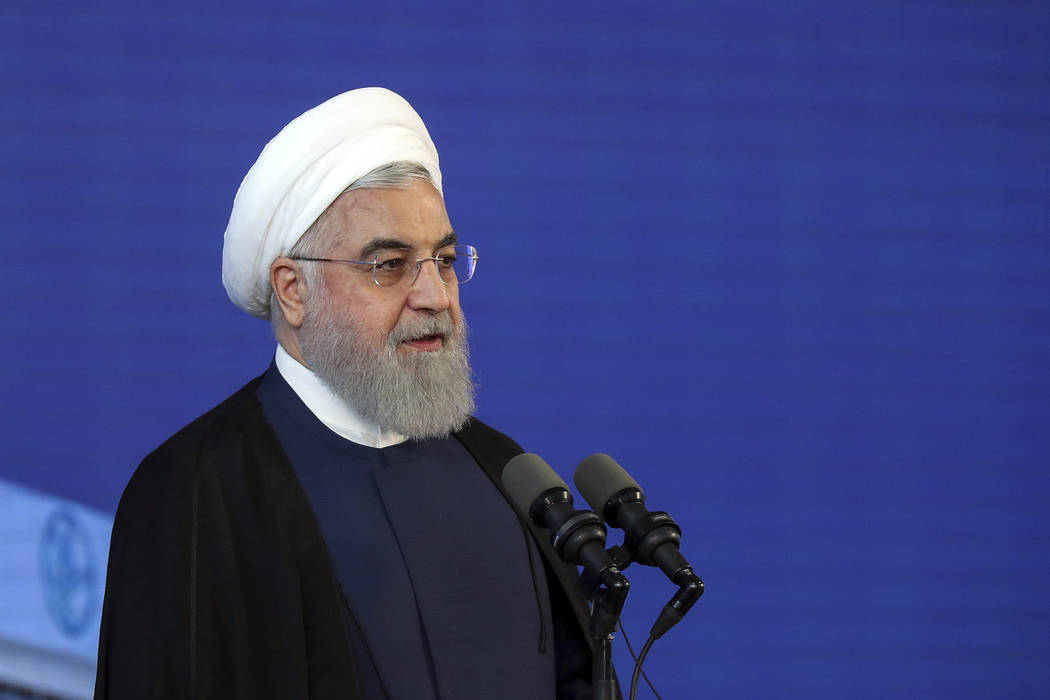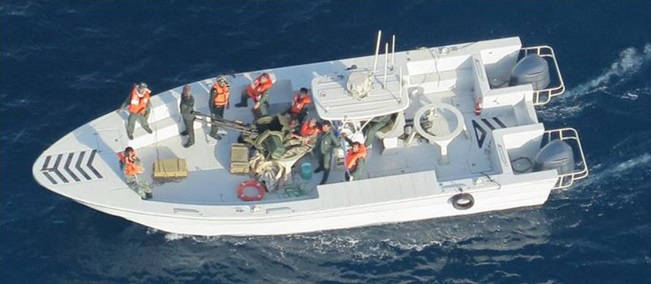US, Iran moves sure to inflame Mideast tensions
WASHINGTON — In a test of resolve and credibility for the United States and Iran, the two adversaries have taken steps sure to further inflame tensions in the Mideast and draw them closer to a flashpoint.
Iran announced it was breaking compliance with the international agreement that keeps it from making nuclear weapons and the Trump administration followed by ordering 1,000 more troops to the Middle East.
The Pentagon said Monday that the deployment includes security forces and troops for additional surveillance and intelligence-gathering. It represents an escalation of American military might aimed at deterring Iran and calming allies worried about the safety of strategic shipping lanes .
Iran soon could start enriching uranium to a step away from weapons-grade levels. That’s a challenge to President Donald Trump’s assurances to allies that the U.S. withdrawal from the deal last year made the world a safer place.
Iran’s president said that while “we do not wage war with any nation,” the entire country “is unanimous in confronting” U.S. pressures. “The end of this battle will see victory of the Iranian nation,” Hassan Rouhani said Tuesday.
Iran said it would not abide by a limit on uranium stockpiles established under the 2015 agreement, which was intended to restrict the Islamic Republic’s nuclear program in exchange for an easing of international sanctions.
After Trump withdrew from the deal signed by President Barack Obama, he reinstated stiff economic sanctions, leaving the European and other partners in the accord struggling to keep Iran on board.
U.S. in awkward position
The U.S. now finds itself in the awkward position of demanding that Iran comply with a deal that Trump derides as the worst in history.
“We continue to call on the Iranian regime not to obtain a nuclear weapon, to abide by their commitments to the international community,” State Department spokeswoman Morgan Ortagus said.
The U.S. accuses Iran of attacking two tankers near the Persian Gulf; the Iranians deny responsibility. With details murky and no one owning up to the attacks, the Pentagon released new photos intended to bolster its case.
In announcing the new deployment, acting Defense Secretary Patrick Shanahan said the forces are “for defensive purposes to address air, naval, and ground-based threats” in the Mideast.
“The United States does not seek conflict with Iran,” Shanahan said, describing the move as intended “to ensure the safety and welfare of our military personnel working throughout the region and to protect our national interests.”
He said the U.S. will continue to adjust troop levels as needed.
Russia urges restraint
Russia urged restraint by all parties and worries that the additional American forces could “bring in extra tensions,” Kremlin spokesman Dmitry Peskov said.
Some supporters of the multinational nuclear deal blamed the Trump administration for Iran’s provocative announcements, saying they were predictable given the renewed U.S. pressure.
“While Iran’s frustration with Trump’s reckless and irresponsible pressure campaign is understandable, we strongly urge Iran to remain in compliance with the nuclear deal,” the Arms Control Association said in a statement. “It remains in Iran’s interests to abide by the limits of the agreement.”
Iran has shown no willingness to negotiate another deal and has pledged not enter into talks with the United States while the administration keeps up the pressure with sanctions.
Administration officials are struggling with whether to press the remaining parties to the deal, including Britain, France and Germany, to demand that Iran stay in compliance. They must also consider whether such a stance would essentially concede that the restrictions imposed during the Obama administration are better than none.
Uranium limit
Under the deal, Iran can keep a stockpile of no more than 660 pounds of low-enriched uranium. Behrouz Kamalvandi, spokesman for Iran’s atomic agency, said it would pass that limit June 27.
A senior U.S. official said the U.S. is most concerned about any violation of the deal that would reduce the time Iran would need to produce a nuclear weapon. The deal aimed to keep that “breakout time” at one year.
The official said certain violations would not necessarily reduce that time. But other violations, such as enriching uranium to 20%, should be addressed immediately if they occur, said the official, who was not authorized to discuss the matter publicly and spoke on condition of anonymity.
Secretary of State Mike Pompeo is expected to meet this week with the European Union’s foreign policy chief, Federica Mogherini, a leading deal proponent.
Pompeo, a leading critic of the deal while he was in Congress, has said Iranian compliance is not really an issue because the administration sees the agreement as fundamentally flawed.
———
Associated Press writer Nasser Karimi in Tehran, Iran, contributed to this report.



